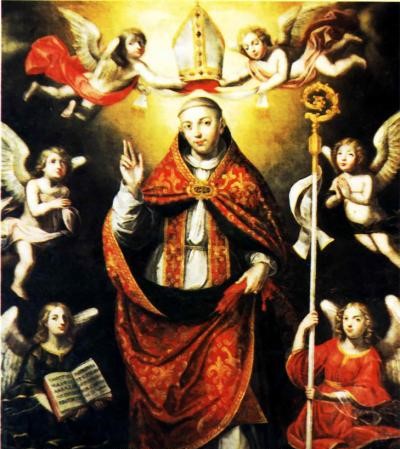
Saint of the Day for 15 January: St. Maurus
St. Maurus: Between History and Devotion, the Charm of a Patron Saint
Name
St. Maurus
Title
Abbot
Birth
512, Rome
Death
Jan. 15, 584, Angers, France
Recurrence
15 January
Martyrology
2004 edition
Prayer
Glorious St. Maurus, honored disciple of St. Benedict and most pure glory of the Church, from the heavenly homeland, where you enjoy for eternity the reward of your virtues, turn your benign gaze upon us, your devotees, in the bitterness and dangers of this life. Grant that our hearts may not be lost behind the fallacious goods of the world, and may our faith never waver at the temptations that move me unceasingly against the ungodly, the enemies of God. Keep away from our families every motive of discord and every feeling of rancor and hatred, so that all of us, living in the charity that Jesus Christ taught us, may feel that we are children of the same Father and clasped in the sweet bond of peace, as if in prelude to that blessed life which, through your valuable intercession we hope to enjoy one day in Heaven. Amen
Patron saints of
Arielli, Lavello, San Mauro Forte, Casoria, San Mauro Cilento, San Mauro la Bruca, Castelnuovo Parano, Canterano, Gessate, Sarnico, San Paolo d’Argon, Buscate, Marzano, Vistarino, Gerenzago, Quingentole, Monsampolo del Tronto, Mathi, Rittana, Palau, Aci Castello, Viagrande, San Mauro Castelverde, Trambileno, Noventa di Piave
Roman Martyrology
In the territory of Angers was Blessed Maurus Abbot, a disciple of Saint Benedict. In the school of the latter he was instructed from his infancy, and of his remarkable progress the wonders which he performed under such a master bear witness, especially in walking on foot over the waters, an admirable thing, and after Peter almost never happened again. He was then sent by Benedict himself to France, and there, having built a celebrated monastery, which he governed for forty years, famous for the glory of miracles, he rested in peace.
The Saint and Mission
St. Maurus Abbot is a figure who deeply embodies dedication and spirituality. His story, interwoven with legends and miracles, still resonates in the hearts of the faithful today. St. Maurus Abbot’s mission, centered on spiritual guidance and service to others, has left a legacy of faith and hope that transcends the centuries. In him we find the embodiment of humility and compassion, qualities that continue to inspire and guide communities. His life, dedicated to spreading Christian values and helping those in need, is a shining example of how faith can be lived out through concrete actions. St. Maurus Abbot is not only a religious symbol, but a beacon of humanity whose story and mission continue to influence and enrich the lives of many.
The Saint and Mercy
St. Maurus Abbot is an emblematic figure who exemplifies mercy in every aspect of his life and teaching. His story, steeped in gestures of compassion and understanding, is reflected in his ability to touch the lives of others with a deep sense of empathy and love. St. Maurus’ mercy is not just a passive virtue, but an active principle that guided him in assisting the needy, consoling the afflicted and promoting peace and harmony in his community. His life represents an ongoing journey of commitment to others, demonstrating that true mercy is an act of giving without expecting anything in return. Through his actions and words, St. Maurus Abbot teaches us that mercy is a transformative force, capable of changing not only the lives of those who receive it but also those who practice it. His legacy continues to be a source of inspiration, reminding us that at the heart of mercy lies the true essence of humanity.
Hagiography
The splendid figure of St. Benedict forms, in the history of Western monasticism, a kind of mystical planetary system, of which the Patriarch is the sun; his sister Scholastica is the moon; and the first two stars are St. Maurus and St. Placidus. The legend presents us with the two first disciples of St. Benedict, very young, as they are led to the Patriarch by their own parents. Maurus belonged to a Roman senatorial family. His father’s name, Equitius, and…
